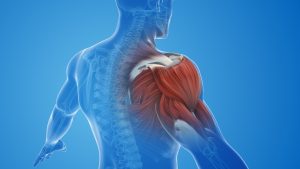A study conducted at the Faculty of Sport and Health Sciences at the University of Jyväskylä has shown that a genetic predisposition to greater muscle strength is associated with longer life expectancy and a lower risk of developing common diseases. This is the most comprehensive international study to date on inherited muscle strength and its relationship to morbidity. The genome and health data of more than 340,000 Finns were used for the study.
Genetic Predisposition to Muscle Strength and Various Diseases
Muscle strength, especially handgrip strength, can be an indicator of a person’s physiological resources that protect them from age-related diseases and disabilities, as well as their ability to cope with them. Age-related loss of muscle strength is individual and is influenced not only by lifestyle but also by genetics. The study found that people with a genetic predisposition to higher muscle strength had a slightly lower risk of common non-communicable diseases and premature mortality. However, they did not predict better survival after acute health impairments compared to before the onset of the disease. It appears that a genetic predisposition to higher muscle strength reflects an individual’s intrinsic ability to resist and protect against pathological changes that occur during aging, rather than the ability to recover or fully recover from severe adversity.
Muscle strength is a multifactorial trait that is influenced by lifestyle and environmental factors, but also by numerous genetic variants, each of which has a very small effect on muscle strength. In this study, the genetic predisposition to muscle strength was defined by constructing a polygenic score for muscle strength, which summarizes the effects of hundreds of thousands of genetic variants in a single score. The polygenic score makes it possible to compare participants with an exceptionally high or low genetic predisposition to muscle strength and to investigate associations with inherited muscle strength and other phenotypes, in this case common diseases. In this study, the researchers were able to use both genetic information and health data from over 340,000 Finnish men and women, and this appears to be the first study to investigate the relationship between a genetic predisposition to muscle strength and various diseases on this scale.
Information on genetic predisposition to muscle strength could be used alongside traditional risk assessment to identify individuals who are at particularly high risk of common diseases and health impairments. However, further research on this topic is still needed. Based on these results, the experts cannot say how lifestyle factors such as physical activity alter a person’s intrinsic ability to resist disease and whether their impact on health differs between individuals due to genetics.
The study used the internationally unique FinnGen dataset, which was compiled through the collaboration of Finnish biobanks. The dataset included 342,443 Finns who had given their consent and provided a biobank sample. The participants were between 40 and 108 years old, and 53% of them were women. The diagnoses selected for the study were based on the leading causes of death and the major non-communicable diseases in Finland. The diagnoses selected included the most common cardiometabolic and pulmonary diseases, musculoskeletal and connective tissue diseases, falls and fractures, mental and cognitive disorders, cancers, and all-cause mortality and mortality from cardiovascular diseases. The study is the second publication of Päivi Herranen’s doctoral thesis, which examines how genetics and environmental factors affect biological ageing, in particular the weakening of muscle strength and functional capacity in old age.
Ghrelin Against Muscle Atrophy
The age-related loss of skeletal muscle mass that is not due to disease is known as sarcopenia, which leads to a deterioration in the quality of life of older people. It causes a decline in muscle mass and functionality, often leading to loss of balance, increased risk of falls and fractures, immobilization and loss of independence. According to a study presented at e-ECE 2020, the hormone ghrelin could help protect older people from muscle wasting. Ghrelin is a hormone that is involved in regulating metabolism and energy balance by activating appetite, but also plays an important role in protecting against muscle wasting.The study found that administering a specific form of ghrelin to older mice helped to restore muscle mass and strength. As muscle-related diseases are a serious health problem in the elderly population, these results point to a potential new treatment strategy for muscle wasting that allows the ageing population to stay fit and healthy.






